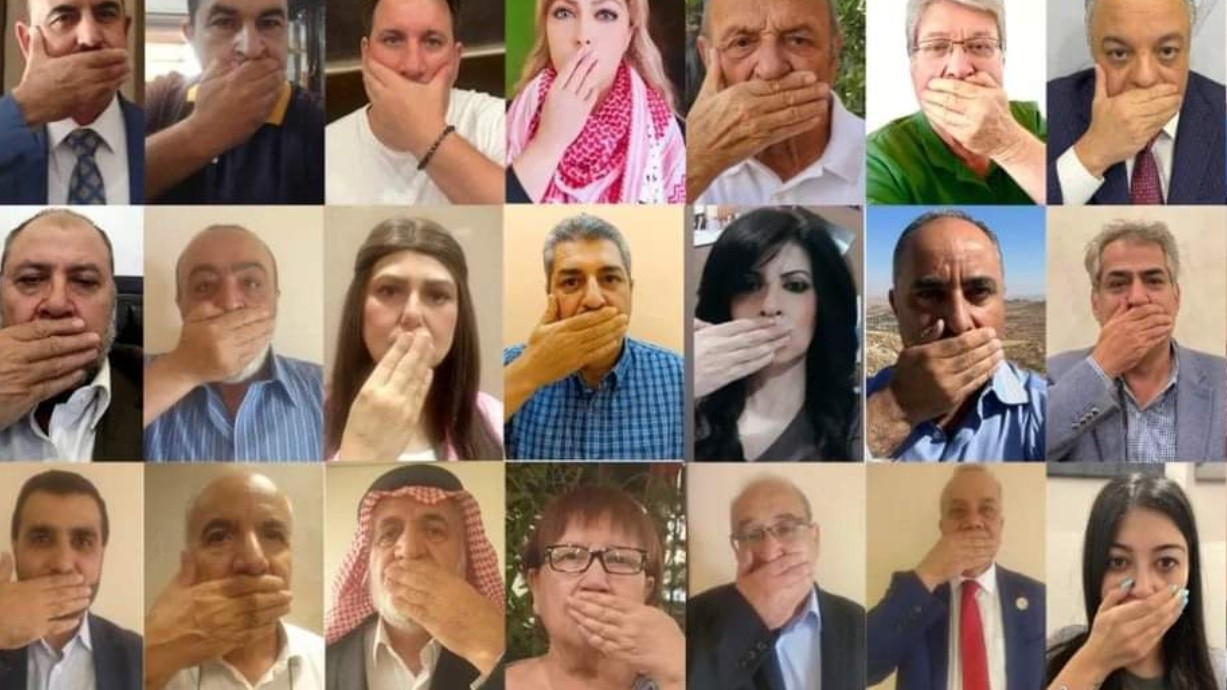Jordan: Alarm raised over 'vague and repressive' cybercrime draft law

A proposed cybercrime law in Jordan has been met with criticism from activists, journalists and human rights campaigners, who say that the legislation will curtail freedom of speech and expression.
The bill, which was proposed earlier this week, outlines a number of restrictions which could result in imprisonment or heavy fines. The bill targets the use of Virtual Private Networks (VPNs), devices that allow users to circumvent restrictions and disguise their identities, use of which could see people serving up to six months in prison.
The proposed law also states that there will be criminal charges for behaviour such as “undermining national unity” and “online character assassination”, terms that critics argue are dangerously vague.
There are 41 proposed amendments to the law, including powers to block social media platforms and slow down websites, as well as giving the state the power to request a post is deleted.
The new law is intended to replace Jordan’s 2015 cybercrime laws.
New MEE newsletter: Jerusalem Dispatch
Sign up to get the latest insights and analysis on Israel-Palestine, alongside Turkey Unpacked and other MEE newsletters
Issa Mahasneh, executive director of the Jordan Open Source Association, said the proposed law will negatively impact freedom of expression, and many journalists and activists have already been detained under the current law.
“We expect even more arrests to happen if this law is passed,” Mahasneh told Middle East Eye. “Internet users will no longer be able to know if their online conduct will be considered a crime or not, resulting in even more online censorship.”
'Internet users will no longer be able to know if their online conduct will be considered a crime or not, resulting in even more online censorship'
– Issa Mahasneh, Jordan Open Source Association
As part of the draft law, companies that do not comply with requirements to have a physical office in the country will face a ban on adverts on their platforms and their bandwidth traffic heavily reduced.
According to Mahasneh, the law is paving the way to further issues, such as webpage admins being held responsible for comments posted by others.
“The scope of the text is so broad it can be applied to admins of WhatsApp groups too, making normal users potential censors of free speech.”
Undermining free speech
On Wednesday, Jordanians gathered to protest against the draft law.
In a video shared by SMEX, an organisation that researches and advocates for self-expression in the Middle East and North Africa, people were shown gathering in the capital, holding posters and flags and chanting.
Around a dozen rights groups, including Human Rights Watch, have urged the Jordanian government to withdraw the bill.
“The draft legislation will jeopardise digital rights, including freedom of expression and the right to information, and will ultimately fail in achieving the Jordanian government’s stated goals of tackling 'disinformation', 'hate speech' and 'online defamation',” their joint statement said.
Jordanian journalists have raised concerns about how the law will infringe on their work, particularly as VPNs are commonly used to preserve their anonymity, help protect their safety and allow them to bypass bans on certain websites.
This, coupled with public prosecutors being allowed to block or remove content online and give personal data to the authorities, puts journalists and activists at risk, critics argue.
As a form of protest, a number of journalists and social media users posted photos of themselves with their mouths covered in a coordinated social media campaign, calling for freedom of speech in the country to be protected.
“With proposed amendments on the cybercrime law, Jordan moves to an advanced stage of repression, making a minefield of the internet, and killing the final window left for any critique of public figures in Jordan,” Reem al Masri, an internet policy researcher, tweeted.
Online protests
The bill's vague language has also raised concern. Some clauses state that there will be consequences for offences such as “provoking strife”, “promoting, instigating, aiding or inciting morality” and “contempt for religions”.
Activists say that in the absence of specific detail about what constitutes such offences, the door is open for anyone to break the law without knowing he or she is doing so.
The Arabic hashtag “a state not a prison” has been used by hundreds of critics on social media.
“If this law is passed, it would be a violation to the rights of 9.95 million internet users in Jordan, as well as a threat to the economic interests of all those who consider the internet and social media platforms as a source of income or a means of advertising their business,” one social media user wrote, encouraging others to spread the hashtag.
In 2021, the Jordanian government announced it was starting "online patrols" to keep an eye on what was being published on social media.
The patrols consist of security personnel who monitor what is being written on social media, and then follow up with the authors if they feel a crime has been committed.
Facebook is used by many political opponents of the Jordanian government, who find the platform's live video stream a useful tool for criticising the authorities and sometimes the king, a taboo subject.
Earlier this month, Jordan blocked the popular satirical news site AlHudood, in a move denounced as censorship and an attack on freedom of expression.
Middle East Eye delivers independent and unrivalled coverage and analysis of the Middle East, North Africa and beyond. To learn more about republishing this content and the associated fees, please fill out this form. More about MEE can be found here.





